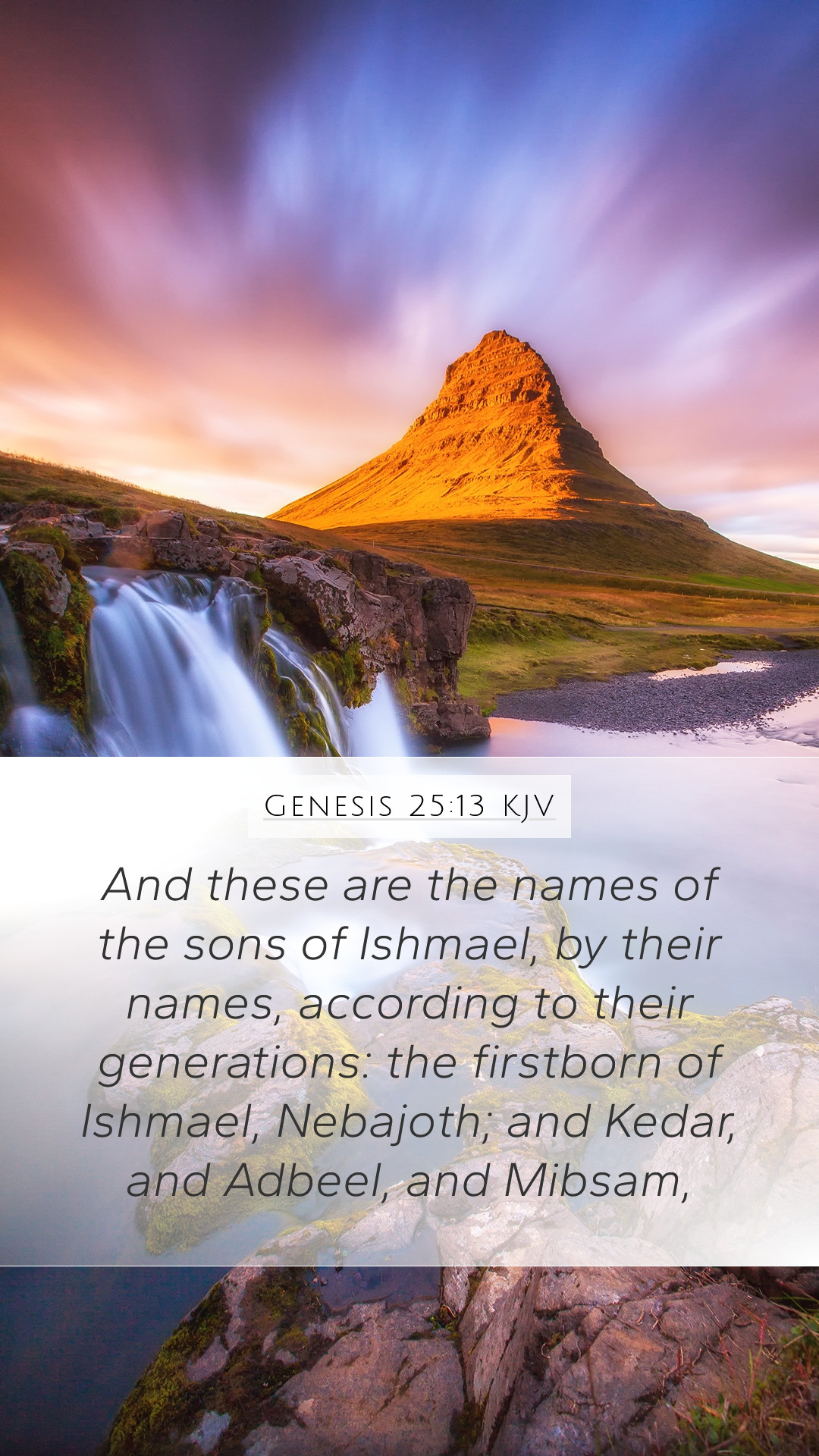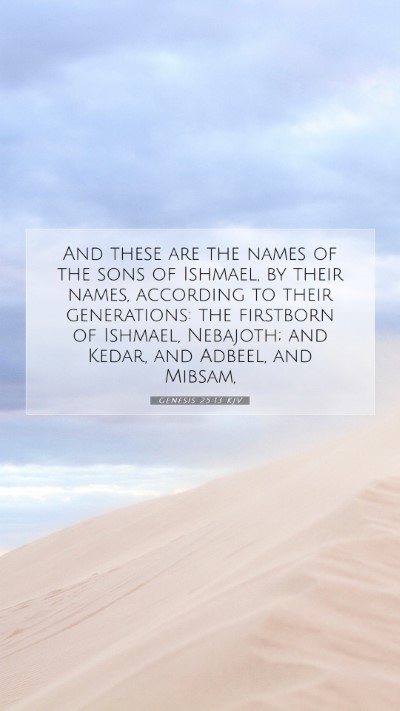Understanding Genesis 25:13
Genesis 25:13: "And these are the names of the children of Ishmael, by their names, according to their generations: the firstborn of Ishmael, Nebajoth; and Kedar, and Adbeel, and Mibsam."
Bible Verse Meaning
The verse marks a significant moment in the narrative of Ishmael, the son of Abraham. It lists the names of his descendants, thereby establishing their identity and lineage. This is crucial in understanding biblical genealogies as they often signify blessings, promises, and the fulfillment of God’s covenant.
Bible Verse Interpretations
This scripture illustrates the expansion of Ishmael's family, represented through the names given. Each name carries historical and cultural weight, reflective of the tribes that would arise from Ishmael and their influence over generations.
Bible Verse Background
Matthew Henry notes that the listing of Ishmael's descendants underscores God's attention to all His creations, extending beyond the chosen line of Isaac. The meticulous naming invites consideration on how God interacts with all peoples.
Albert Barnes emphasizes the importance of names in scripture, highlighting their connection to the character and destiny of individuals and nations. The names of Ishmael’s sons serve to foreshadow the nations that would emerge and their relationships with Israel.
Adam Clarke offers insights into the cultural significance of these names, suggesting they symbolize different traits or aspects of life. This encourages readers to ponder over the deeper meanings and the implications for God’s plan across nations.
Significance of the Verse
The names cited in this verse represent both a literal family tree and a metaphorical understanding of how various tribes and nations would interact with Israel. Biblical exegesis illustrates how these connections influence the historical narrative.
Bible Study Insights
- Understanding Scripture is enhanced by recognizing genealogical lines and their implications.
- The verse demonstrates the richness of Biblical genealogies, which convey theological truths.
- This passage invites reflection on God's promises spanning nations beyond Israel.
Application of the Verse
The lesson here pertains to recognizing the diverse paths of humanity under God's sovereignty. Bible study lessons can delve into how we relate to people of different backgrounds and tribes, fostering an understanding that all descendants are part of God's creation.
Related Cross References
- Genesis 16:11-12 - The prophecy concerning Ishmael's life.
- Genesis 17:20 - God's promise about Ishmael.
- Genesis 21:9-10 - The conflict involving Isaac and Ishmael.
Conclusion
In studying Genesis 25:13, we gain valuable bible verse commentary that not only enriches our bible study groups but also enhances our online bible study and tools. This passage reflects God's overarching design, reminding us of the intricate tapestry of human history as part of divine providence.


